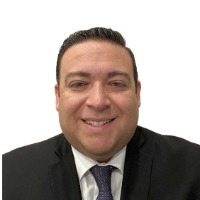 Red Bank Criminal Lawyers, New Jersey
Red Bank Criminal Lawyers, New Jersey
Sponsored Law Firm
-
 x
x

Click For More Info:
-
Cohen & Bernstein, L.L.C.
1360 Clifton Ave #309 Clifton, NJ 07012» view mapCriminal Defense We’re In this Together!
We work hand in hand with our clients to ensure all of your questions are answered and progress through your legal issue is seamless.
800-978-7341
Sponsored Lawyers
1-10 of 29 matches
Divorce & Family Law, Real Estate, Estate, DUI-DWI
David R. Cardamone, Esq. focuses his legal practice on family law, real estate, and estate planning, administration and litigation. Dave’s approach to each case is to first learn his client’s needs and goals before seeking to craft an efficient, cost-effective strategy for obtaining a desirable outcome. He approaches each case with the mindset that by seeking win/win, creative solutions expensive litigation can be avoided, while understanding that he must prepare each file on behalf of his client as if the case will proceed to trial. Because each matter is unique, Dave’s approach to each case is unique. He is not just your attorney/mediator, and you are not just his client; rather, he is your partner in navigating through one of the most stressful times of your life. In handling his transactional files, Dave’s focus is to ensure that his client feel knowledgeable about the process and, most importantly, to remain readily available to them to make the process proceed efficiently.
(more)Criminal
New Jersey native Kevin A. Buchan concentrates his legal practice in the areas of criminal defense, administrative law, and ethics proceedings. He regularly handles all phases of criminal litigation at both the state and federal levels. Kevin’s interest in criminal defense work began in law school when he served as an intern in the office of the Union County Prosecutor. From that time on, he knew that he wanted to devote his career to criminal law. Following law school, Kevin served as a criminal law clerk for the Honorable William L’E. Wertheimer, J.S.C. This experience gave him further insight into the workings of the criminal justice system. Kevin takes pleasure in his ability to help others, particularly at a time in their lives when they may have stumbled or made mistakes. Colleagues describe Kevin as practical, approachable, and knowledgeable in the day-to-day practice of law. Clients appreciate that he cares about them and is attentive to the details of their cases, as well as being quietly tenacious in his pursuit of justice on their behalf. Kevin is decisive and always goes the distance to gets things done for his client. These traits have served him well in his criminal defense practice, as well as during his tenure as the Municipal Prosecutor for Franklin Township, New Jersey. He was appointed to that position in January, 2009. Kevin has been consistently recognized for his proficiency in the practice of law. Kevin has regularly been honored in New Jersey Monthly Magazine as a “Super Lawyers – Rising Star” since 2009. In 2014, Kevin was elected as a Trustee to the Association of Criminal Defense Lawyers of New Jersey. Kevin resides in Holmdel, New Jersey with his wife and four children. When he is not working, Kevin, a former member of the Rutgers Varsity Lacrosse team, he enjoys watching Rutgers football and coaching his kids’ sports teams.
(more)Criminal, Divorce & Family Law, Accident & Injury, Workers' Compensation, Traffic
Our firm is dedicated to protecting your rights and advocating for you. Whether you are facing a criminal charge or suffering from a personal injury, having a knowledgeable and experienced attorney who takes the time to understand your situation can be the difference between a favorable result and a devastating one. We can help. As a criminal defense attorney, Adam Jon Weisberg has the necessary knowledge of the criminal justice system, combined with trial skills that only come from experience, to vigorously defend you against any criminal charge. When your future is on the line, you need an attorney that not only understands criminal law, but one that will fight for you every step of the way. Attorney Adam Jon Weisberg also lectures on issues involving real estate transactions and property law. When you decide to buy or sell property, working with us means having someone to protect your interests. We negotiate terms and execute transactions for residential and commercial property, as well as purchase and sale of existing businesses.
(more)Divorce & Family Law, Criminal
At Larkin Farrell, LLC we refer to ourselves as a “team” throughout our website and sales materials because it is important to us that we convey to our clients, and potential clients, the collaborative nature of the way we handle each file we are assigned. We, as a firm, do not assign a file and forget about it. We collaborate and strategize every step of the way. We are committed to surrounding ourselves with individuals who think outside-the-box and who can contribute to the success of the firm on multiple levels. We are committed to our clients and work together to solve their legal problems in the best, most cost effective way. Below are the profiles of the individuals that make up the Larkin Farrell team.
(more)


 Lindsay Bernstein Clifton, NJ
Lindsay Bernstein Clifton, NJ Practice AreasExpertise
Practice AreasExpertise




